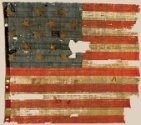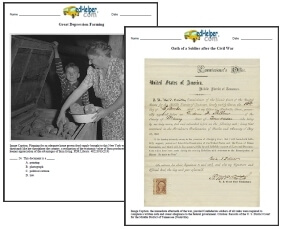
Worksheets and No Prep Teaching Resources
Reading Comprehension Worksheets
The War of 1812

The War of 1812
 Worksheets and No Prep Teaching Resources Reading Comprehension Worksheets The War of 1812 |
 The War of 1812 |
| edHelper's suggested reading level: | grades 7 to 9 | |
| Flesch-Kincaid grade level: | 5.56 |
|
Say "Uncle!" - The Strange End of the War of 1812
By Toni Lee Robinson |

|
 |
Create Weekly Reading Books
Prepare for an entire week at once! |
| Leave your feedback on Say "Uncle!" - The Strange End of the War of 1812 (use this link if you found an error in the story) |
 |
The War of 1812
|
 |
High School Reading Comprehensions and High School Reading Lessons
|
 |
United States
|
|
|
 | Fifty States Theme Unit |
 |
Document Based Activities |